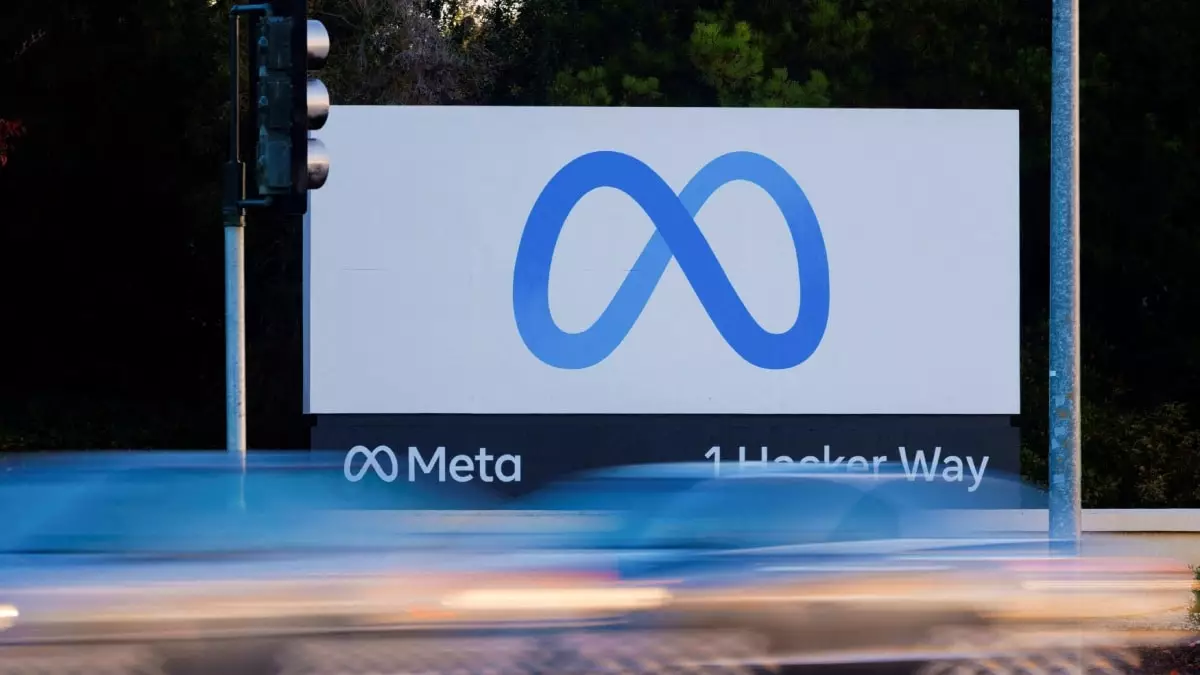The landscape of digital commerce and social media governance is rapidly evolving, and major players like Meta Platforms Inc. are finding themselves under increased scrutiny. Recently, the European Union (EU) levied a staggering fine of €798 million (approximately $841 million or Rs. 7,100 crore) against Meta, marking a pivotal moment in the battle against monopolistic practices in the tech industry. This decision not only highlights the EU’s commitment to fair competition but also signals a more intricate phase in regulatory measures aimed at tech giants.
The European Commission’s decision to penalize Meta unfolds against a backdrop of growing concerns regarding antitrust behavior in the technology sector. The regulators specifically criticized Meta for linking its Facebook Marketplace service with its expansive social media platform, Facebook. Margrethe Vestager, the EU’s antitrust chief, articulated that the integration of these services established uneven trading conditions for other online classified advertisements, asserting that Meta’s actions sought to elevate its own Marketplace at the expense of competitors.
This ruling is pivotal as it draws a line in the sand for the practices tech companies can deploy within their expansive ecosystems. The implications are significant: businesses that leverage massive user bases to outmaneuver competitors now have clearer constraints on their operations. By targeting such practices, the EU aims to safeguard innovation and ensure that all players, particularly smaller firms, can compete on a more equitable basis.
In response to the punitive measures, Meta has expressed its intent to appeal the ruling, arguing that it disregards the realities of a flourishing European market. The company’s defensive stance underlines a broader frustration among major tech firms, which often view regulatory actions as stifling innovation and market dynamics. Following the announcement, Meta’s stock experienced a minor dip, reflecting investor wariness amidst escalating regulatory pressure.
The context for this penalty extends beyond just the Marketplace issue. Meta has faced a multitude of challenges, with ongoing investigations and lawsuits adding to its legal woes. A separate ruling allowed the Federal Trade Commission’s antitrust case against Meta to proceed, amplifying concerns about the company’s capacity to navigate an increasingly hostile regulatory landscape. Meanwhile, shifts in the political climate in the U.S. may bolster rival platforms, underscoring intensifying competition faced by Meta.
This fine against Meta fits into a broader pattern of heightened regulatory actions directed at major technology firms. The EU has increasingly focused on holding companies accountable for anticompetitive practices, as demonstrated by past sanctions against other giants like Google. Over the last decade, Vestager’s team has dished out billions in fines, illustrating a robust commitment to instilling rigorous standards in the digital marketplace.
Other tech companies, including Amazon, have also navigated similar scrutiny. Although Amazon managed to evade significant penalties through proposed changes to its practices, the window for any leniency appears to be narrowing. The rising pressure from regulatory bodies worldwide paves the way for a transformative era in operation standards for these global entities.
Undoubtedly, the Digital Markets Act (DMA) marks a turning point in how regulators will approach big tech. The act establishes strict regulations for market behaviors and intends to dismantle unfair competitive advantages held by Silicon Valley corporations. It promises to catalyze transformative changes in how tech giants like Meta and Google interact with smaller competitors and consumers alike.
Moving forward, compliance with the DMA will be pivotal for Meta, as the regulations are not merely suggestions; they offer a framework to ensure fair competition. The EU has already initiated investigations into Meta and Google’s practices regarding the DMA, with Apple expected to face scrutiny soon. This evolving landscape sets higher stakes for compliance, promising stricter enforcement and potentially more severe penalties for infractions.
The ramifications of the EU’s ruling against Meta Platforms Inc. reverberate far beyond the immediate financial penalty. As the tech giant prepares to appeal the decision, it must concurrently navigate ongoing regulatory pressures and rising competition from both emerging platforms and established rivals. The confluence of regulatory actions, evolving market dynamics, and political influences will undoubtedly shape Meta’s strategies moving forward.
For the broader tech industry, the challenges faced by Meta serve as critical reminders of the need for transparency, accountability, and fair play. As regulators worldwide toughen their stance against perceived monopolistic practices, the path ahead will demand adaptability and a willingness to conform to new norms that prioritize competitive advantage and fair market practices.


Leave a Reply
You must be logged in to post a comment.